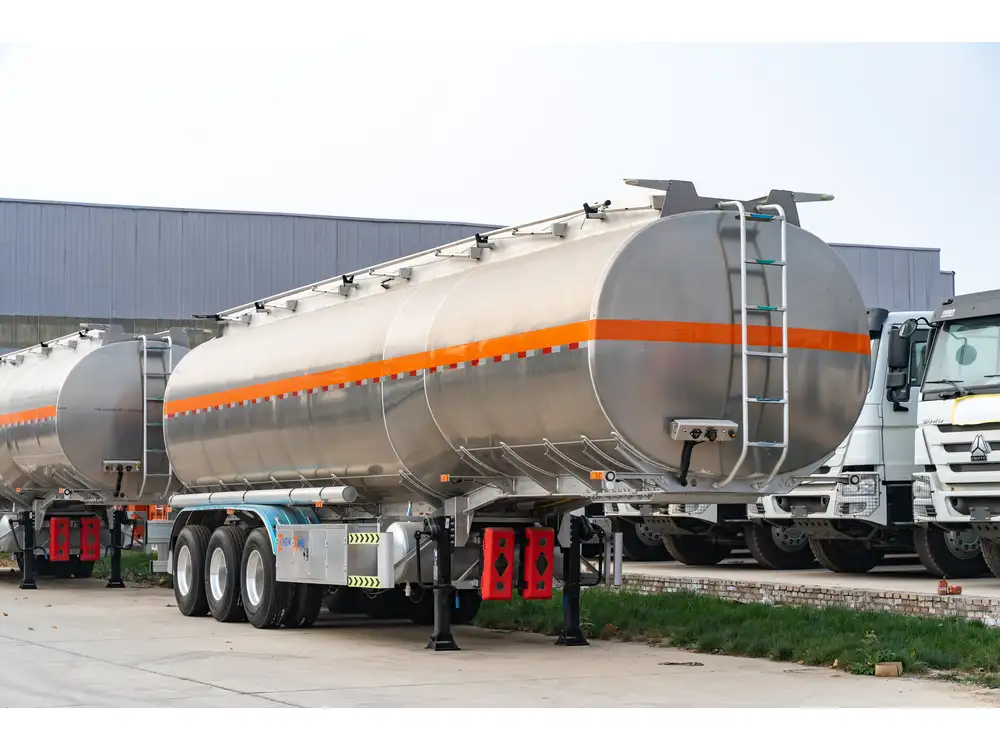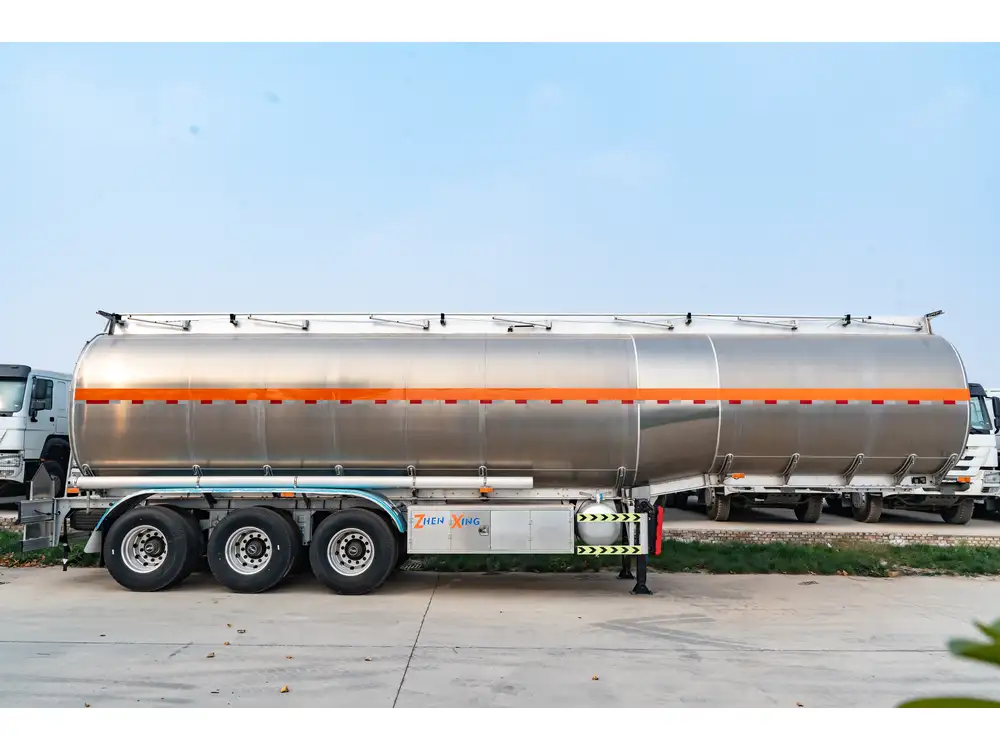Navigating tax deductions for equipment such as dump trailers can be challenging yet crucial for maximizing potential savings. Whether you utilize a dump trailer for personal purposes or within your business operations, understanding how tax deductions work can aid in significant financial management. In this comprehensive guide, we delve into the intricate process of claiming a dump trailer on your taxes, detailing the necessary steps, eligibility, documentation, and tax implications you need to consider.
Understanding the Tax Deduction Landscape
To effectively claim a dump trailer, one must grasp the fundamental tax concepts related to deductions and depreciation. Generally speaking, a business-related expense can be deducted from your taxable income, thereby reducing the amount of tax owed. Understanding the type of deductions available is essential for maximizing your tax benefits.
Types of Tax Deductions
| Deduction Type | Description |
|---|---|
| Capital Expenses | These are costs incurred to acquire or improve a long-term asset. |
| Section 179 Deduction | Allows businesses to deduct the full purchase price of qualifying equipment. |
| Bonus Depreciation | Additional depreciation option that can be taken in the year the asset is placed in service. |
| Operational Expenses | Ongoing costs associated with running the dump trailer (e.g., maintenance, fuel). |

Claiming a Dump Trailer as a Business Expense
If you own a dump trailer that is primarily used for business purposes, you can deduct the expenses associated with it. Let’s unfold the steps to ensure you can effectively claim this asset on your tax return.
Step 1: Determine Business Use Percentage
First, establish the percentage of the trailer’s use for business versus personal purposes. This is vital because only the portion utilized for business can be claimed. For example, if your dump trailer is used 70% for business reasons, then you can only claim 70% of the expenses.
Step 2: Record Keeping
Meticulous record keeping is essential. Maintain receipts and records of:
- Purchase Cost: Keep the original bill of sale or invoice.
- Maintenance and Repairs: Document regular service expenses, repairs, and any replacement parts.
- Operational Costs: Note fuel costs, insurance, and other running expenses.

Step 3: Choosing the Right Deduction Method
You can take the Section 179 Deduction or choose to depreciate the asset over time. Here’s a quick comparison:
| Option | Pros | Cons |
|---|---|---|
| Section 179 Deduction | Immediate tax saving in the year of purchase. | Limit on the total amount that can be deducted each year. |
| Depreciation | Spread out the deduction over several years. | Smaller tax benefits in the initial year. |
Section 179 Deduction in Detail
The Section 179 deduction lets you write off the entire cost of the dump trailer in the year you purchase it, provided it qualifies under IRS guidelines. The maximum deduction was set at $1,080,000 for 2022, limited to your business’s taxable income.
Qualifying for Section 179
To qualify for the Section 179 deduction on your dump trailer:
- Ownership: You must own the trailer and have a secured loan or paid in cash.
- Business Use: The equipment must be predominantly used for business.
- In-Service Requirement: You must place the asset in service within the given tax year.

Understanding Bonus Depreciation
If your dump trailer does not qualify for Section 179 or if you have costs exceeding the limit, consider bonus depreciation. Starting from 2023, businesses can claim 100% of the cost of tangible property after the asset is placed in service, making it an attractive option for substantial purchases.
Additional Considerations: Operating Expenses
Don’t overlook the operational costs associated with your dump trailer:
- Fuel: If the trailer is used for business—transporting materials, for instance—you can deduct the fuel costs.
- Repairs and Maintenance: Routine servicing, parts, and emergency repairs are all potentially deductible.
- Insurance: Premiums paid on the trailer’s insurance can be included as business-dependent expenses.
Documentation for Operating Expenses
Ensure you have:
- Receipts for all fuel purchases.
- Invoices from repair shops and service centers.
- Insurance policy documents proving payments made.

Navigating IRS Forms
Once you’ve established your expenditures, it’s time to prepare your tax forms. Depending on your business structure, here’s a simplified outline for claims:
- Sole Proprietorship: Use Schedule C (Profit or Loss from Business) to report income and expenses.
- Partnership or Multi-Member LLC: Use Form 1065; deductions will flow through to individual partners.
- Corporation or S Corporation: Use Form 1120 or 1120S, respectively, to document your expenses.
Example of Deductions on Tax Forms
| Business Structure | Key Form(s) | Claim Method |
|---|---|---|
| Sole Proprietorship | Schedule C | List business income; deduct expenses, including trailer-related costs. |
| Partnership/ LLC | Form 1065 | Allocate deductions and income proportionately. |
| Corporation | Form 1120 | Claim all operational, capital, and depreciation expenses. |
Potential Audit Risks to Consider
Maintaining compliance with IRS guidelines is vital. Here are common pitfalls that could trigger an audit:
- Exaggerated Expenses: Ensure claims reflect actual, documented business usage.
- Mixed-use Claims: Be clear about business vs. personal use; if overestimated, it can lead to penalties.
- Insufficient Documentation: Document every relevant cost with receipts, records, and justifications for deductions claimed.

Tips to Reduce Audit Risk
- Use Accounting Software: Invest in reliable accounting software to track expenses accurately.
- Stay Organized: Keep systematic records of all receipts, invoices, and documented usage.
- Consult a Tax Professional: Enlist an expert if uncertain about claims to avoid missteps.
Conclusion: Maximizing Your Deduction
Claiming a dump trailer on your taxes involves strategic planning, diligent record keeping, and awareness of IRS requirements. By implementing the guidelines laid out in this article, you can navigate the tax landscape with confidence, ensuring you maximize your deductions effectively.
In summary:
- Determine Business Use: Calculate the percentage of business use.
- Keep Detailed Records: Document all relevant expenses diligently.
- Choose Between Section 179 and Depreciation: Analyze which option yields better tax benefits.
- File Appropriately: Ensure you complete the correct tax forms according to your business structure.
Ultimately, understanding the nuances of claiming a dump trailer on your taxes can provide significant advantages during tax season, increasing your net savings while ensuring compliance with tax laws. To fully harness the financial benefits of your dump trailer investment, always consider working alongside a tax professional knowledgeable in business-related deductions.



